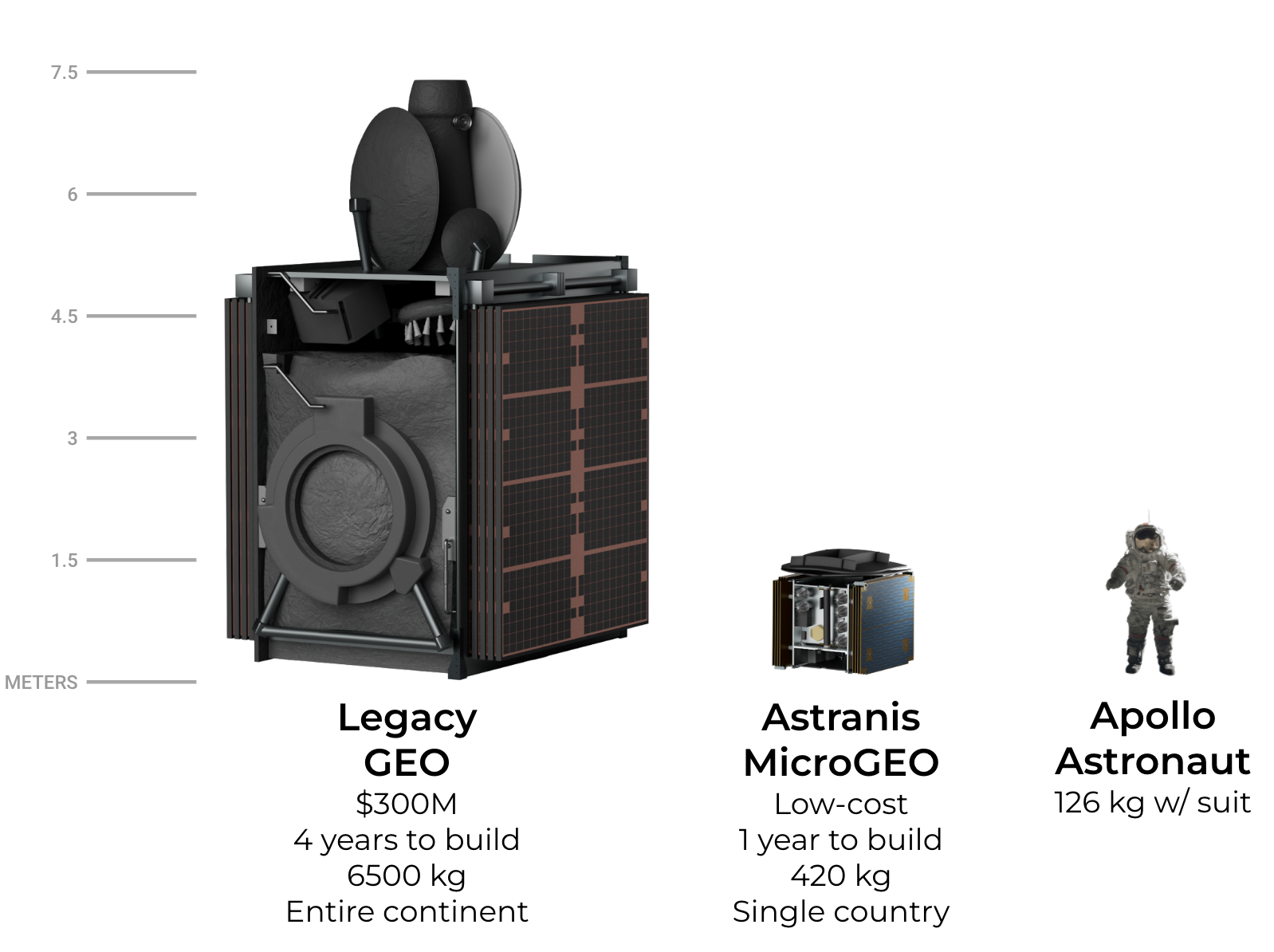Astranis, a satellite internet startup based in San Francisco, said Wednesday that its first spacecraft completed a milestone test and will start bringing broadband access to rural Alaskans as soon as mid-June.
It’s a major step for the company, which was founded in 2015 by John Gedmark and Ryan McLinko. By taking a first principles approach to satellite development, the pair bet that they could make a smaller, cheaper spacecraft for geosynchronous orbit — the orbit farthest from Earth and arguably the most inhospitable — and use them to bring internet to millions, or even billions, of people around the globe.
Their bet is paying off: The company’s first satellite, Arcturus, launched on a Falcon Heavy at the end of April. Within less than two minutes after separating from the rocket’s upper stage, the spacecraft started sending telemetry and tracking data to Astranis engineers. From there, the satellite connected to an internet gateway in Utah and communicated with multiple user terminals in Alaska for the first time.
“We integrated a new kind of satellite for higher orbits like geostationary orbit, and we’re happy to say that it works,” Gedmark, Astranis’ CEO, said in a recent interview.
Astranis is one of a handful of companies developing hardware and software to provide people with broadband internet access from space, but it is taking a markedly different approach from some of its peers. The first major difference is the orbit at which Astranis will operate: geosynchronous, or GEO, which is around 22,000 miles above the Earth’s surface. Satellites in GEO stay fixed in relation to where they’re pointing toward the Earth, which means they can provide continuous service to a single geographical area.
This is contrasted with a network like SpaceX’s Starlink, which operates a very high volume of satellites in low Earth orbit at an altitude of around 340 miles.
But the satellites that Astranis has developed, which it calls “microGEO,” are notably distinct even from other spacecraft in GEO.
One major difference is the size of the satellite. Arcturus is about the size of a dishwasher, whereas other satellites built for GEO are much larger, around the size of a double-decker bus. For this reason and others — including having to design the spacecraft to survive the extreme radiation and thermal environment of that orbit — GEO satellites have traditionally cost upwards of hundreds of millions of dollars each.

Astranis says its satellites are far less expensive and can be built at a fraction of the time compared to legacy systems.
The company has raised over $550 million at a $1.6 billion valuation from a notable suite of investors, including Andreessen Horowitz, BlackRock and Baillie Gifford. In addition to its contract with Pacific Dataport, the middle-mile telecom provider that will sell the broadband internet to Alaskans, Astranis has signed contracts with companies in Peru and Mexico, as well as the U.S. Space Force. That’s not including over $1 billion in orders over the next 24 months.
These are remarkable achievements. But the past eight years hasn’t been without its challenges, Gedmark said. He listed some off: “A global pandemic, a war in Europe, a banking crisis.”
“The toughest [time] was probably the last year or so as we were really getting close to launch, but the launch got delayed. That happened several times, so this has been a long time coming.”
Astranis has no intention of slowing down. With the end-to-end communications test complete, the company is looking to start providing broadband service in Alaska by mid-June. Four more Astranis-built satellites will head to Earth later this year aboard a dedicated Falcon 9 rocket. One of those satellites is earmarked for Latin American Grupo Andesat to provide broadband to millions in rural Peru; two will be leased to Anuvu, a company that provides internet on planes and cruises; and the fourth is for a yet-to-be-named customer.
“We do expect things to really turbocharge,” Gedmark said. “Our commercial sales team is going to have their hands full.”
The story has been updated to reflect that Astranis has raised $550 million to date.































Comment